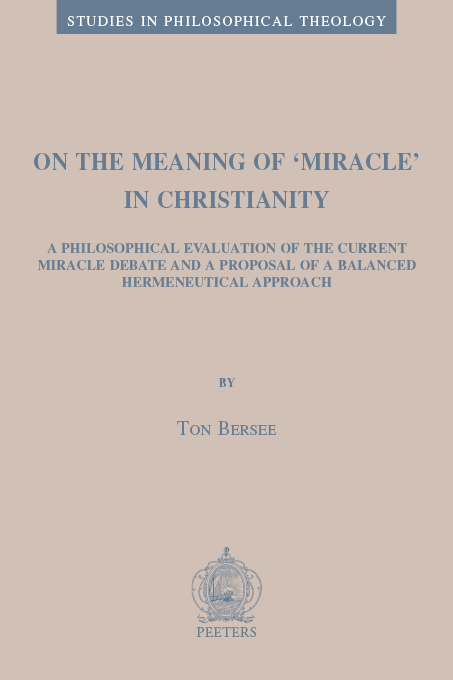

 0
EN
0
EN

Miracle narratives are an essential part of nearly all religious traditions. The importance of miracles also applies to Christianity. The Gospels record thirty-five miracles that Jesus is said to have performed, including twenty-three miraculous healings and nine nature miracles (for example, stilling a storm and turning water into wine). At the heart of Christian faith lies the story of Jesus’ resurrection from the dead. However, the factuality of these events has been increasingly problematised, especially since the period of the Enlightenment. In this study, it is argued that the current debate between science-oriented critics of miracles and their religious opponents focuses predominantly on the question of factuality and evidence at the loss of the religious meaning of miracles. The suggestion that science and religion would be opposite approaches is denied in a proposal of a balanced hermeneutical approach of miracles that does justice to scientific findings, religious texts and experience.



